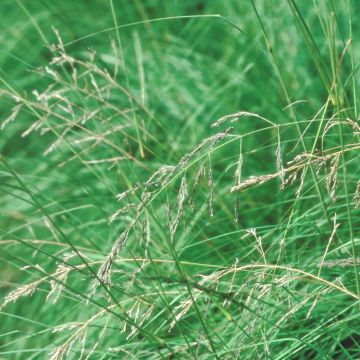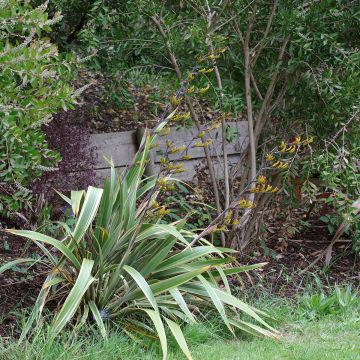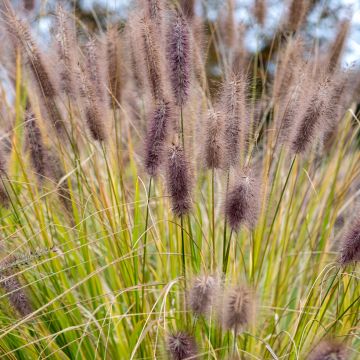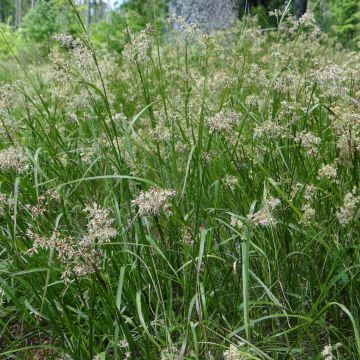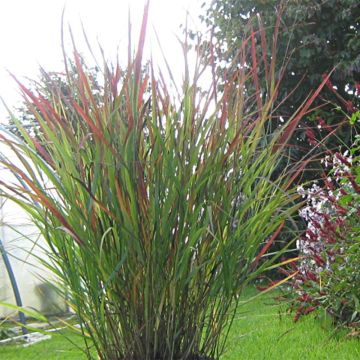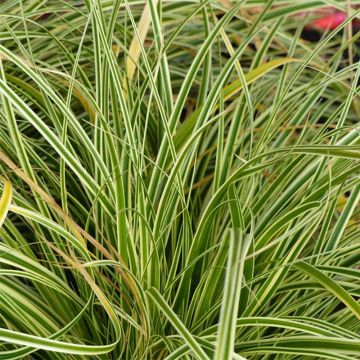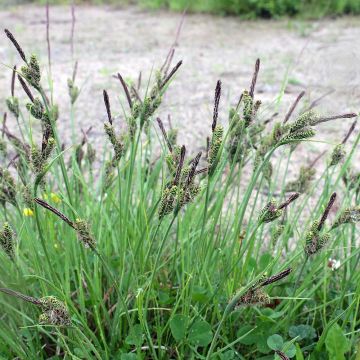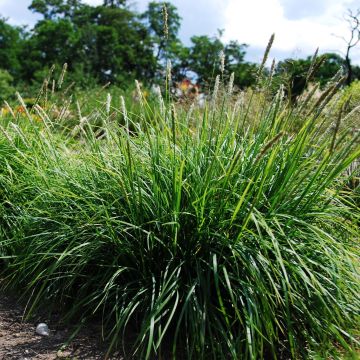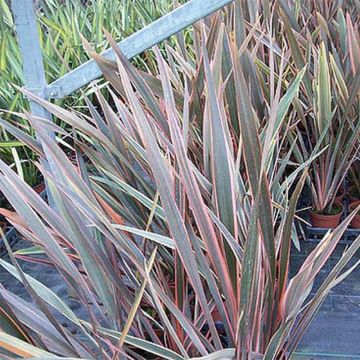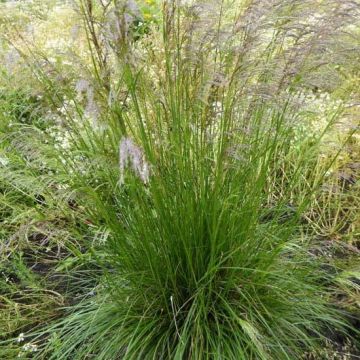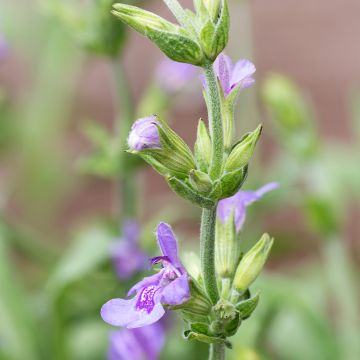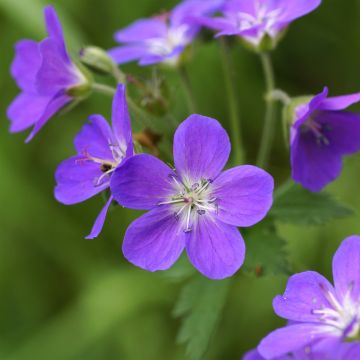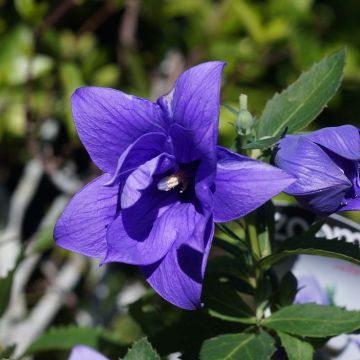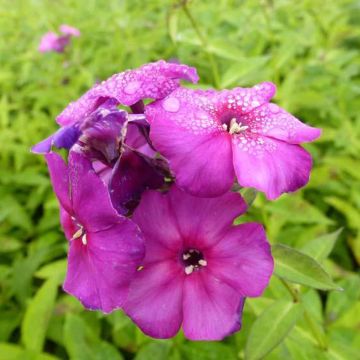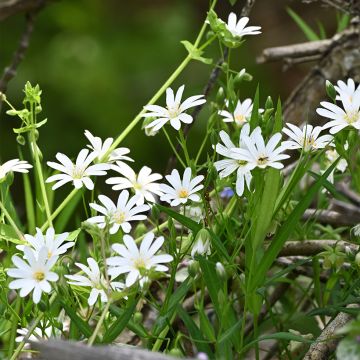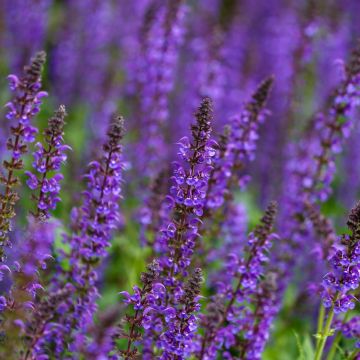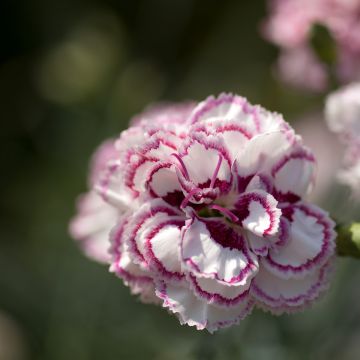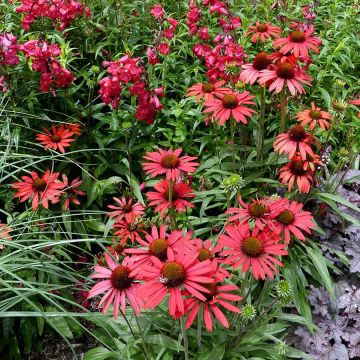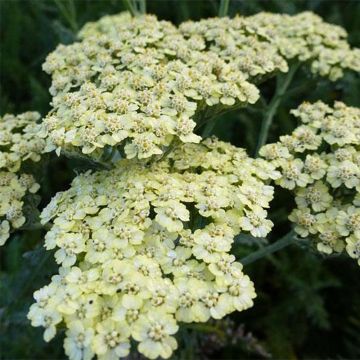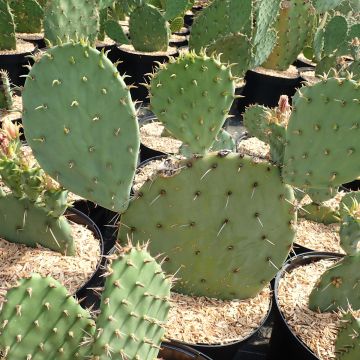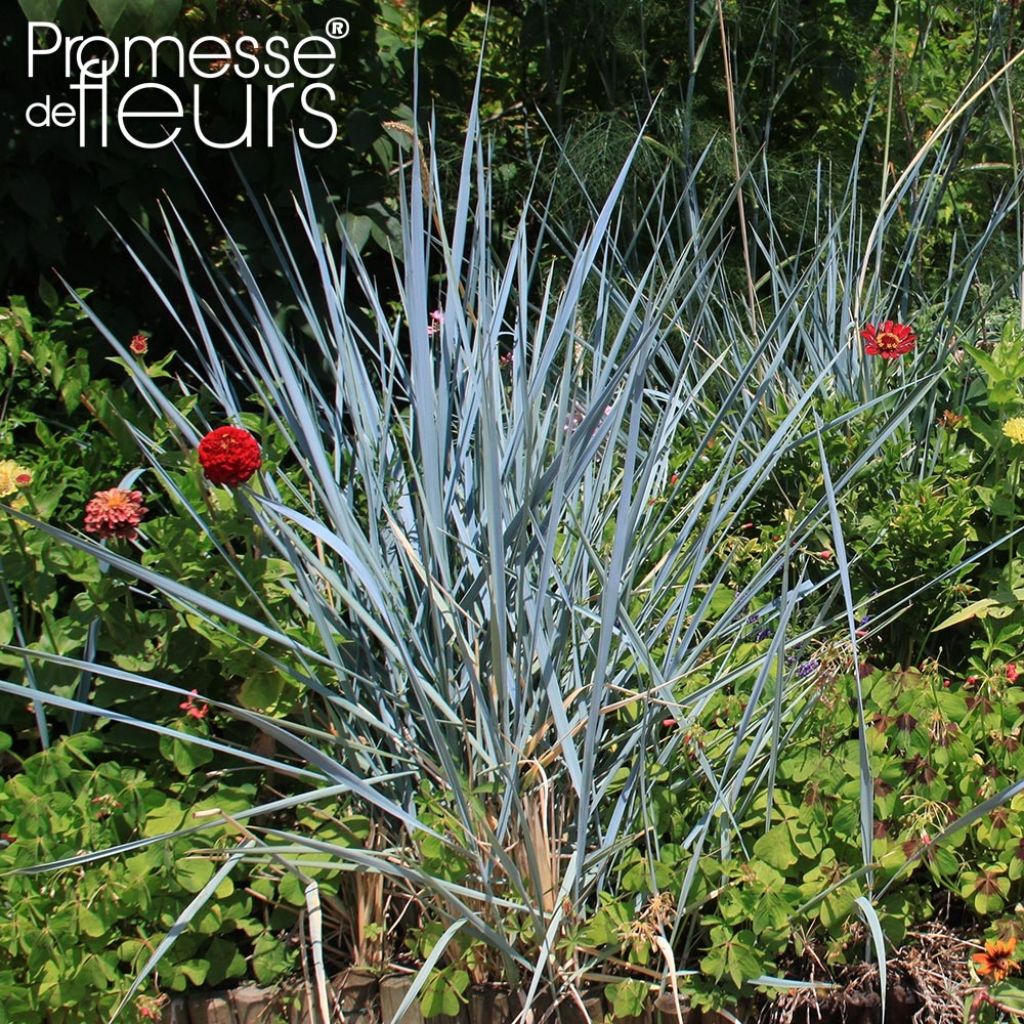

Leymus arenarius Blue Dune
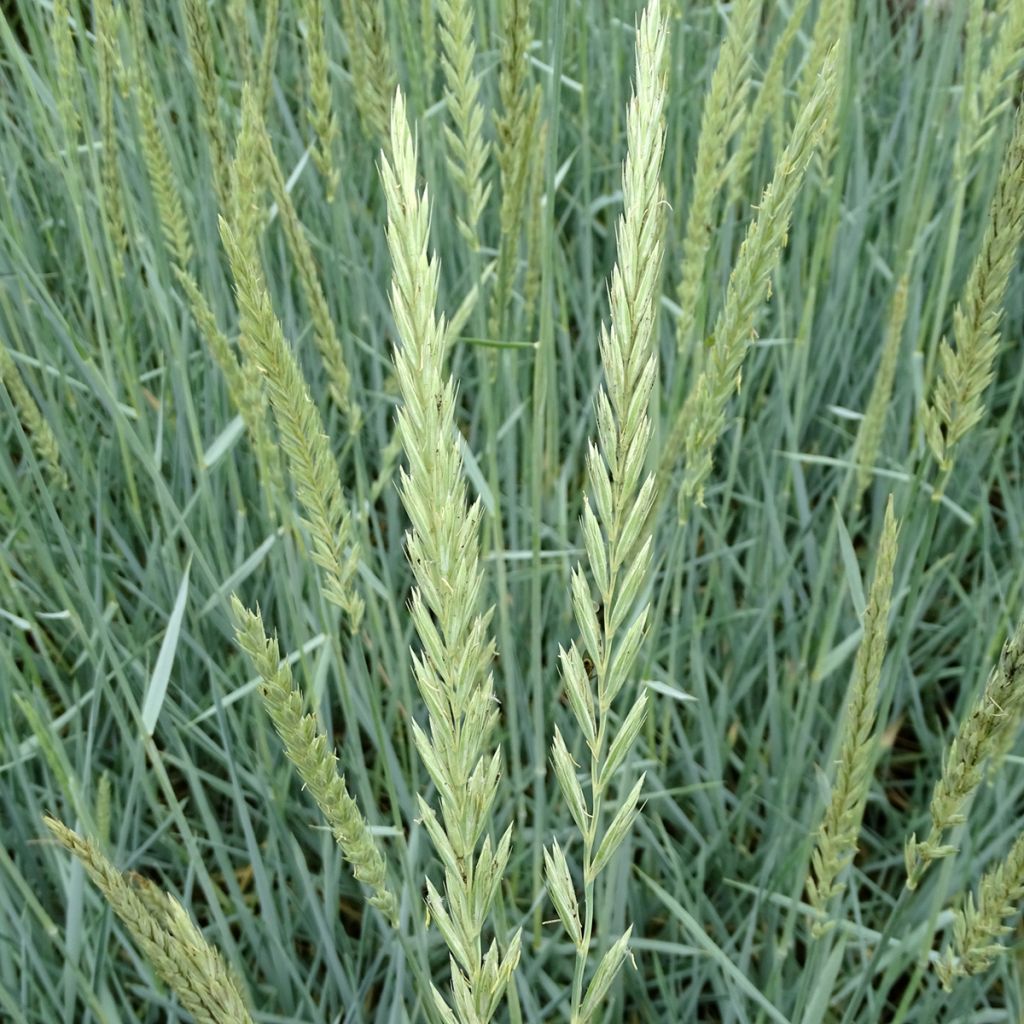

Leymus arenarius Blue Dune
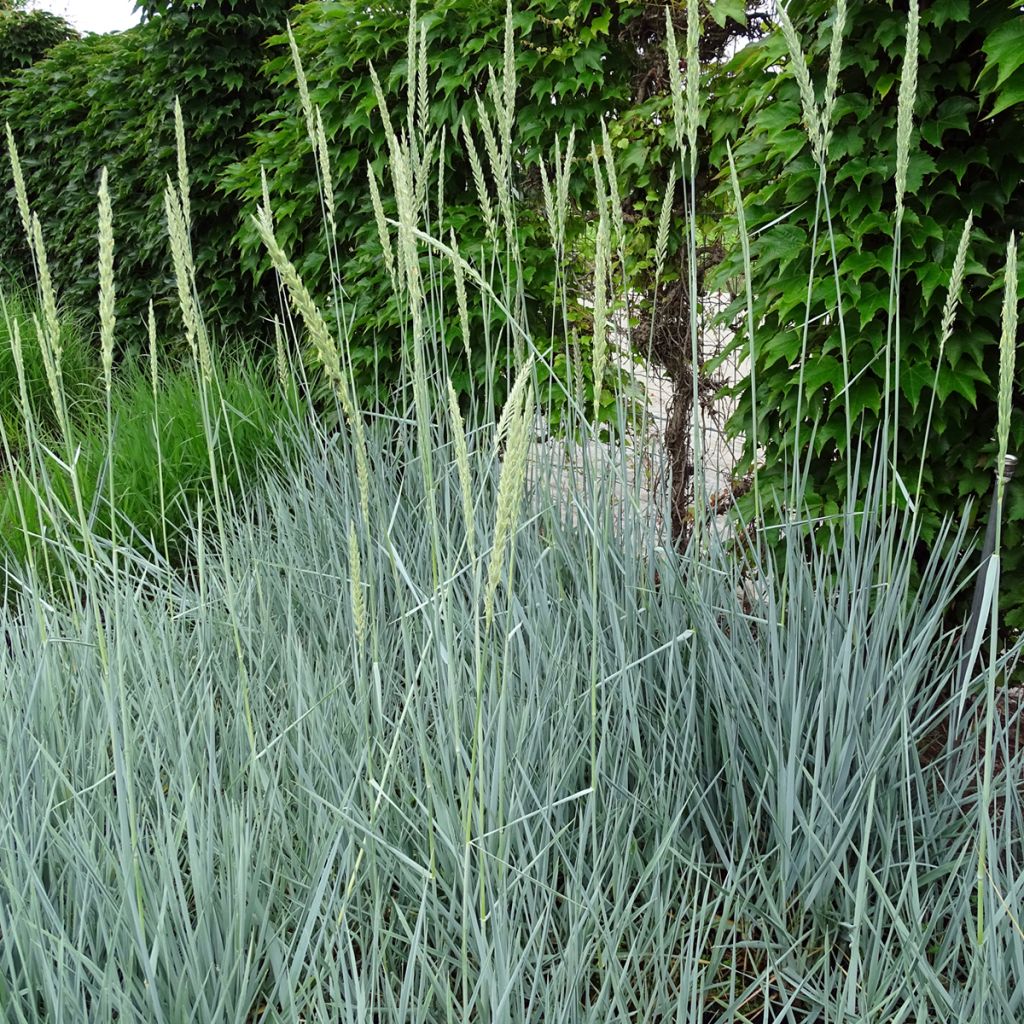

Leymus arenarius Blue Dune
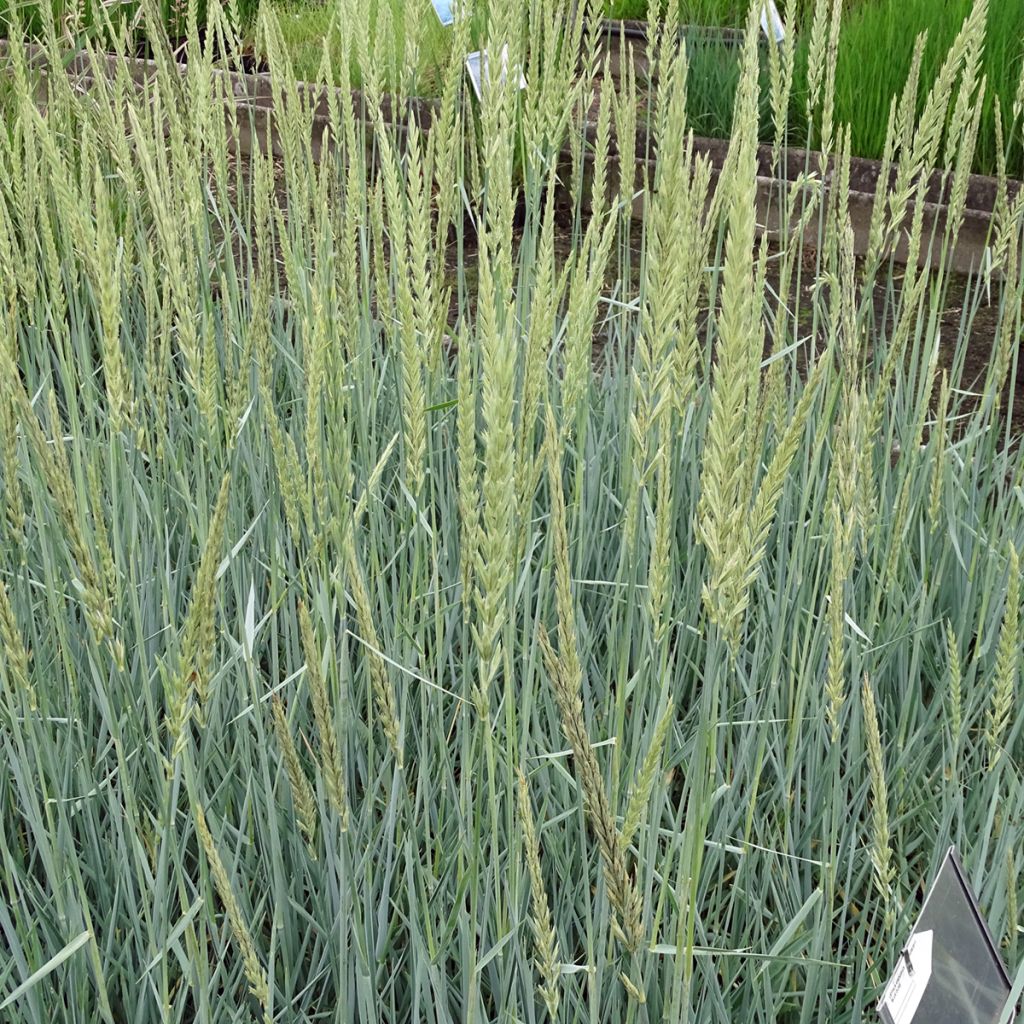

Leymus arenarius Blue Dune
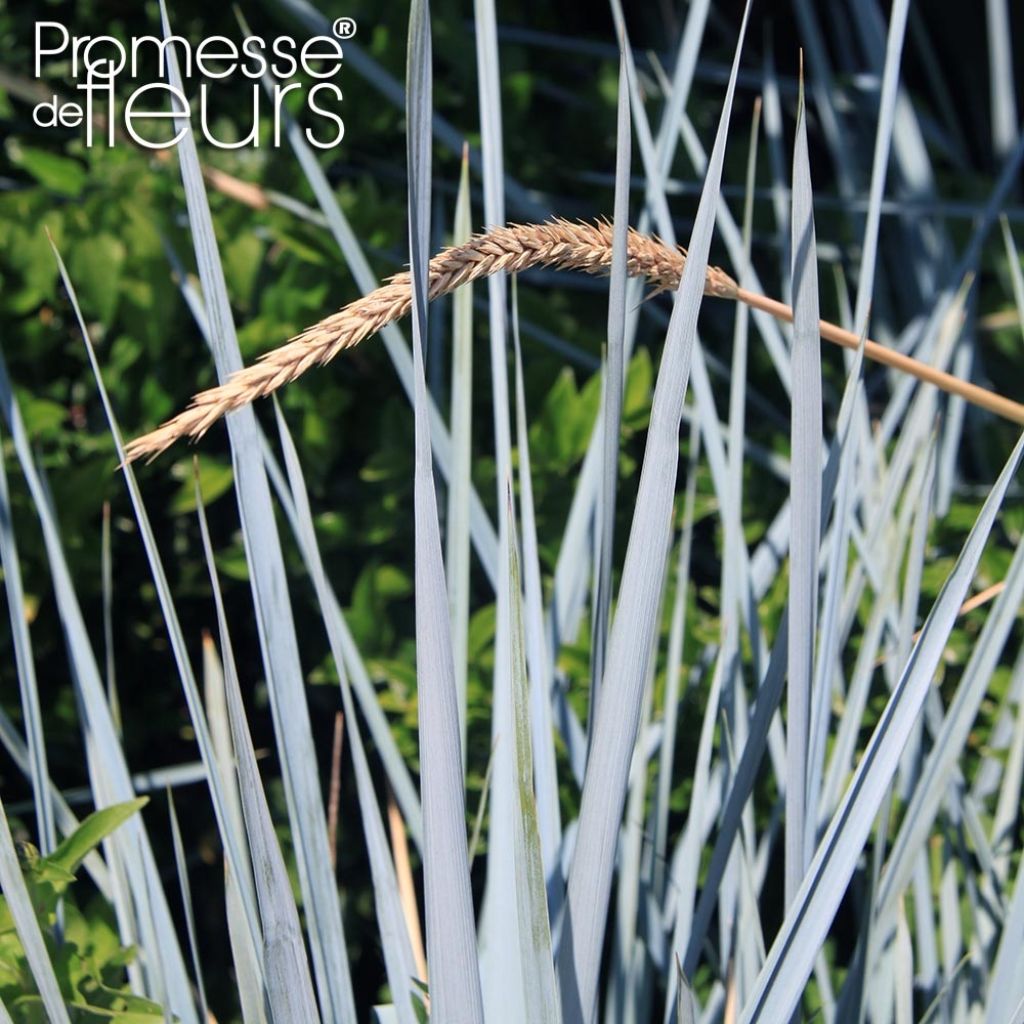

Leymus arenarius Blue Dune
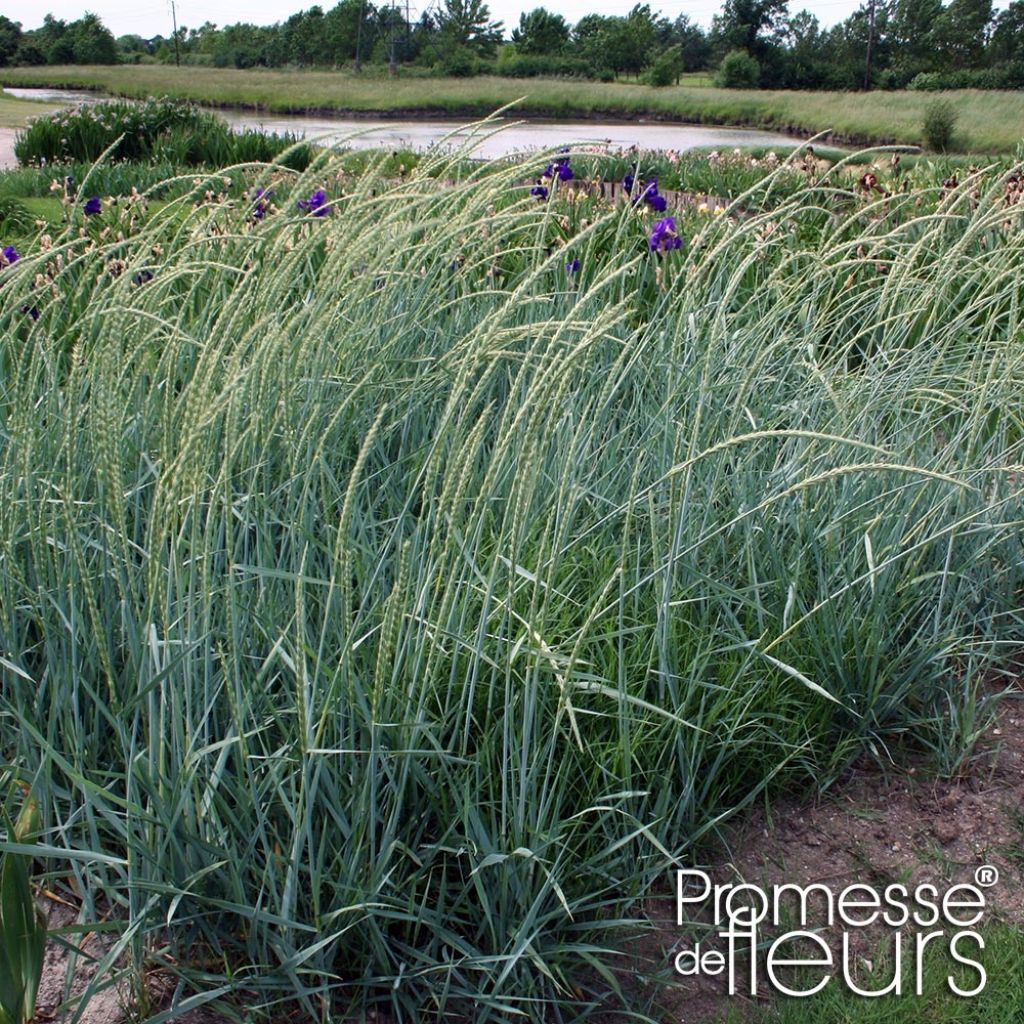

Leymus arenarius Blue Dune
Leymus arenarius Blue Dune
Leymus arenarius Blue Dune
Lyme Grass, European Dune Grass, Sand Lyme Grass
This item cannot be shipped to the selected country
Delivery charge from €5.90
More information
Schedule delivery date,
and select date in basket
This plant carries a 12 months recovery warranty
More information
We guarantee the quality of our plants for a full growing cycle, and will replace at our expense any plant that fails to recover under normal climatic and planting conditions.
From €5.90 for pickup delivery and €6.90 for home delivery
Express home delivery from €8.90.
Does this plant fit my garden?
Set up your Plantfit profile →
Description
Leymus arenarius 'Blue Dune' is a beautiful variety of Lyme Grass with steel blue foliage, even more decorative than this superb grass of the wild dunes. This plant is an intrepid conqueror, whose stump, equipped with trailing rhizomes, is capable of quickly colonising space. Forming large luminous tufts, it is adorned in summer with pretty flower spikes ranging from grey-blue to straw yellow at maturity. It is superb in flower beds or as groundcover. It is also spectacular when planted in a border or in large pots on the patio.
Leymus arenarius, also known as Sand Lyme Grass, is a perennial herbaceous plant of the large family of grasses. It is mainly found in Asia, North America, and central Europe, in boreal climates, on sandy and salty soils, which are often arid.
Reaching 1.30 m (4ft) when flowering, this 'Blue Dune' variety quickly forms large tufts of foliage, measuring 60-70 cm (24-28in) in all directions. Its stump is vigorous, stoloniferous, and creeping. Its stems are stiff, erect, arched and robust. Its leaves, 8 to 15 cm (3 to 6in) wide and 60 cm (24in) long, are flat, ribbon-like, about one centimetre wide, smooth, rolled at the tip, and glaucous in colour. They are covered with a white to silvery bloom which gives them their steel blue colour. The inflorescences appear from June to August, at the ends of the floral stems, and remain on the plant until December. They are long spikes, fifteen to thirty centimetres in length, robust and compact, reminiscent of those of wheat. They display a beautiful blue-silver hue before turning blond at maturity. The foliage yellows and dries in winter.
Leymus Arenarius Blue Dune is an ideal plant for coastal areas, especially for stabilising dunes. Stony and dry soils and slightly arid slopes are also a favoured habitat for this grass that tolerates everything. It is also a very ornamental plant in flower beds or borders, as well as for decorating the patio in large flower pots. Due to its tendency to colonise the soil, it is preferable to plant it in a large buried container or use rhizome barriers if you want to use it in large flower beds. It can also be pruned short to achieve a lawn-like groundcover. In flower beds, combine Lyme Grass with low-maintenance asters, double-flowered Hemerocallis fulva Flore Pleno, rudbeckias, or tall sedums.
This species is frequently attacked by the Ustilago Hypodytes fungus. No spikes form, instead a large black fungus appears.
Report an error about the product description
Leymus arenarius Blue Dune in pictures
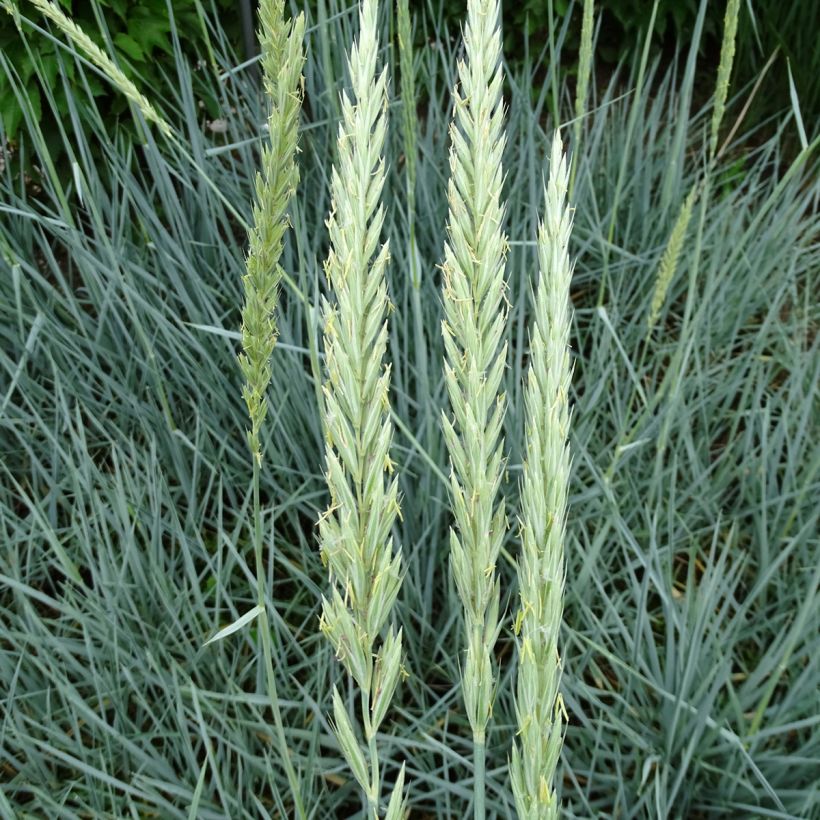

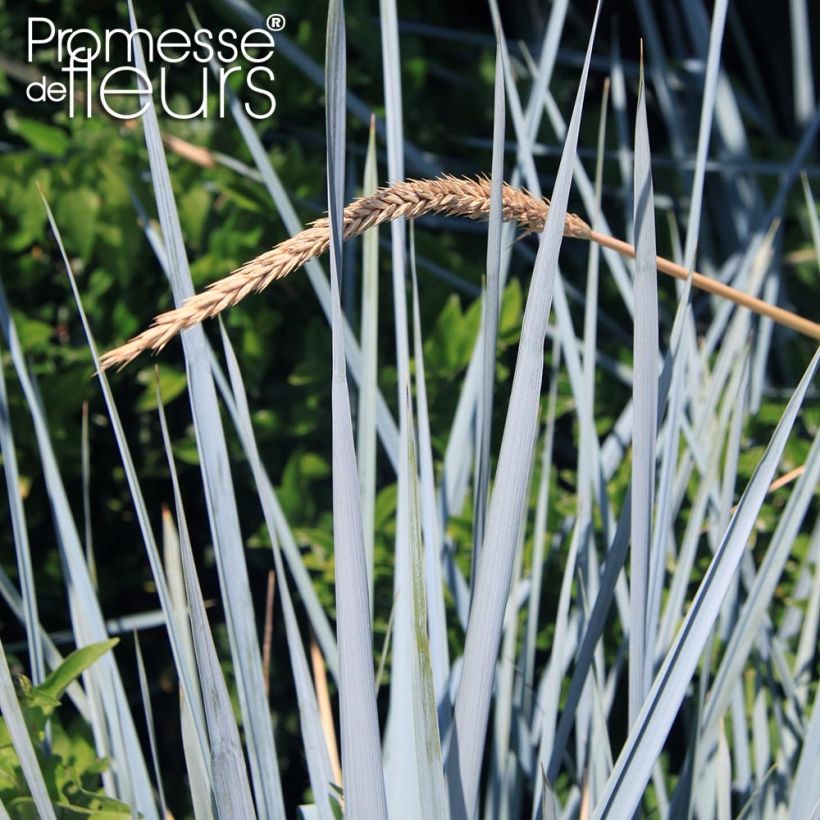

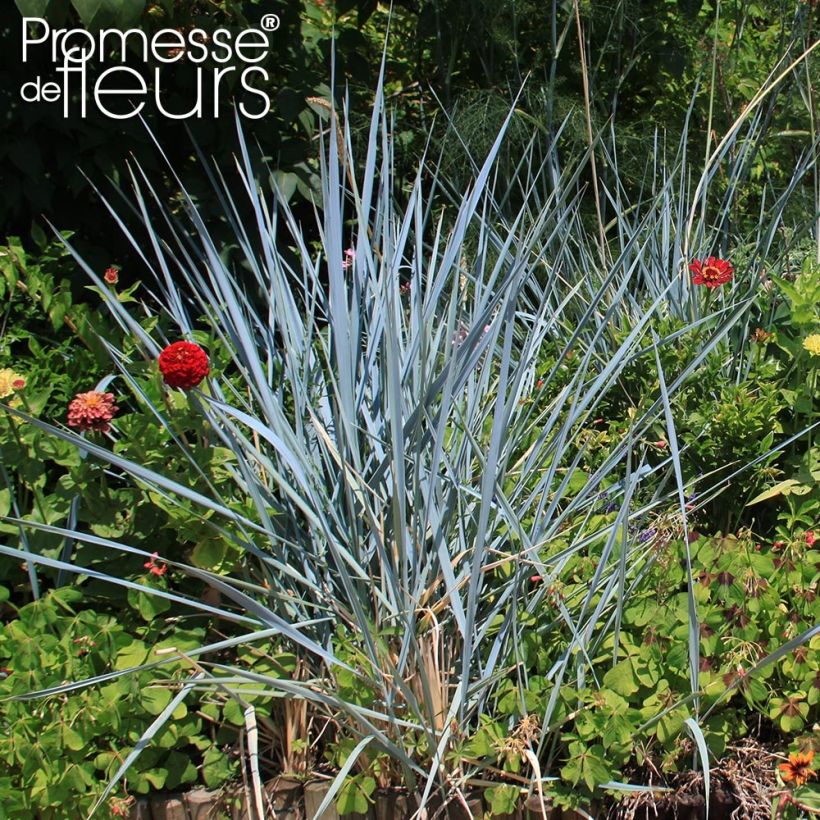

Flowering
Foliage
Plant habit
Botanical data
Leymus
arenarius
Blue Dune
Poaceae
Lyme Grass, European Dune Grass, Sand Lyme Grass
Western Europe
Other Ornemental grasses A to Z
Planting and care
Leymus Arenarius Blue Dune enjoys very sunny locations. A plant of cold climates, Leymus arenarius nevertheless withstands hot and dry summers. It prefers a well-drained, light and moderately fertile soil. In nature, it grows in dunes, almost entirely made of pure and salty sand.
Leymus does not require a lot of nutrients, which can encourage lush vegetation at the expense of flowers. A spring application of compost can be beneficial in very poor soils. Grasses are good plants for containers: use a compost based planting mix with 20% sand to lighten it. The foliage can be left until February, as it provides structure and movement in the beds. The plants can then be pruned to 10 cm (4in) above the ground when vegetation starts to grow again.
The presence of a parasite, Ustilago hypodytes, can prevent any flowering and spike formation. This results in the appearance of a large black fungus.
Planting period
Intended location
Care
This item has not been reviewed yet - be the first to leave a review about it.
Summer flowering perennials
Haven't found what you were looking for?
Hardiness is the lowest winter temperature a plant can endure without suffering serious damage or even dying. However, hardiness is affected by location (a sheltered area, such as a patio), protection (winter cover) and soil type (hardiness is improved by well-drained soil).

Photo Sharing Terms & Conditions
In order to encourage gardeners to interact and share their experiences, Promesse de fleurs offers various media enabling content to be uploaded onto its Site - in particular via the ‘Photo sharing’ module.
The User agrees to refrain from:
- Posting any content that is illegal, prejudicial, insulting, racist, inciteful to hatred, revisionist, contrary to public decency, that infringes on privacy or on the privacy rights of third parties, in particular the publicity rights of persons and goods, intellectual property rights, or the right to privacy.
- Submitting content on behalf of a third party;
- Impersonate the identity of a third party and/or publish any personal information about a third party;
In general, the User undertakes to refrain from any unethical behaviour.
All Content (in particular text, comments, files, images, photos, videos, creative works, etc.), which may be subject to property or intellectual property rights, image or other private rights, shall remain the property of the User, subject to the limited rights granted by the terms of the licence granted by Promesse de fleurs as stated below. Users are at liberty to publish or not to publish such Content on the Site, notably via the ‘Photo Sharing’ facility, and accept that this Content shall be made public and freely accessible, notably on the Internet.
Users further acknowledge, undertake to have ,and guarantee that they hold all necessary rights and permissions to publish such material on the Site, in particular with regard to the legislation in force pertaining to any privacy, property, intellectual property, image, or contractual rights, or rights of any other nature. By publishing such Content on the Site, Users acknowledge accepting full liability as publishers of the Content within the meaning of the law, and grant Promesse de fleurs, free of charge, an inclusive, worldwide licence for the said Content for the entire duration of its publication, including all reproduction, representation, up/downloading, displaying, performing, transmission, and storage rights.
Users also grant permission for their name to be linked to the Content and accept that this link may not always be made available.
By engaging in posting material, Users consent to their Content becoming automatically accessible on the Internet, in particular on other sites and/or blogs and/or web pages of the Promesse de fleurs site, including in particular social pages and the Promesse de fleurs catalogue.
Users may secure the removal of entrusted content free of charge by issuing a simple request via our contact form.
The flowering period indicated on our website applies to countries and regions located in USDA zone 8 (France, the United Kingdom, Ireland, the Netherlands, etc.)
It will vary according to where you live:
- In zones 9 to 10 (Italy, Spain, Greece, etc.), flowering will occur about 2 to 4 weeks earlier.
- In zones 6 to 7 (Germany, Poland, Slovenia, and lower mountainous regions), flowering will be delayed by 2 to 3 weeks.
- In zone 5 (Central Europe, Scandinavia), blooming will be delayed by 3 to 5 weeks.
In temperate climates, pruning of spring-flowering shrubs (forsythia, spireas, etc.) should be done just after flowering.
Pruning of summer-flowering shrubs (Indian Lilac, Perovskia, etc.) can be done in winter or spring.
In cold regions as well as with frost-sensitive plants, avoid pruning too early when severe frosts may still occur.
The planting period indicated on our website applies to countries and regions located in USDA zone 8 (France, United Kingdom, Ireland, Netherlands).
It will vary according to where you live:
- In Mediterranean zones (Marseille, Madrid, Milan, etc.), autumn and winter are the best planting periods.
- In continental zones (Strasbourg, Munich, Vienna, etc.), delay planting by 2 to 3 weeks in spring and bring it forward by 2 to 4 weeks in autumn.
- In mountainous regions (the Alps, Pyrenees, Carpathians, etc.), it is best to plant in late spring (May-June) or late summer (August-September).
The harvesting period indicated on our website applies to countries and regions in USDA zone 8 (France, England, Ireland, the Netherlands).
In colder areas (Scandinavia, Poland, Austria...) fruit and vegetable harvests are likely to be delayed by 3-4 weeks.
In warmer areas (Italy, Spain, Greece, etc.), harvesting will probably take place earlier, depending on weather conditions.
The sowing periods indicated on our website apply to countries and regions within USDA Zone 8 (France, UK, Ireland, Netherlands).
In colder areas (Scandinavia, Poland, Austria...), delay any outdoor sowing by 3-4 weeks, or sow under glass.
In warmer climes (Italy, Spain, Greece, etc.), bring outdoor sowing forward by a few weeks.

































